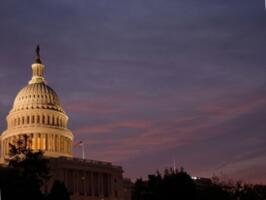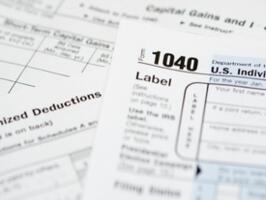Most Voters Still Feel Tax Cuts, Spending Cuts Help The Economy
Most voters continue to believe that the economy would be better off if both taxes and government spending were reduced, but if taxes are increased, voters still lean toward raising them only on the rich.
A new Rasmussen Reports national telephone survey finds that 52% of Likely U.S. Voters think tax cuts help the economy. That’s in the low end of findings that have ranged from 51% to 63% in monthly surveys since July 2008. Twenty-one percent (21%) say tax cuts hurt the economy, while 15% say they have no impact. Twelve percent (12%) are not sure. (To see survey question wording, click here.)
Similarly, 51% of voters believe decreases in government spending help the economy, while 28% feel they hurt. Eleven percent (11%) say reduced government spending has no impact on the economy, but another 10% are not sure. These findings are consistent with surveys since late 2009.
In line with past surveys, 70% of Republicans and a plurality (48%) of voters not affiliated with either party feel tax cuts are good for the economy. Just 37% of Democrats share that view. While 72% of GOP voters and 46% of unaffiliateds think spending cuts are good for the economy, Democrats are almost evenly divided on the question.
But a plurality (48%) of all voters also continue to say that they would vote for a candidate who would raise taxes only on the rich over one who opposes all tax increases. Thirty-nine percent (39%) would opt for the candidate opposed to all tax hikes, while 13% more are undecided.
From July 2008 to February 2010, voters were evenly divided over which type of candidate they’d vote for. Support for a candidate who opposes all tax increases steadily rose in 2010 peaking at 54% just before the mid-term elections. For most of this year, however, voters have tended to support the candidate who would raise taxes only on the rich.
There’s an even more noticeable partisan divide on this question. Sixty-nine percent (69%) of Republicans favor the candidate who opposes all tax increases, while 70% of Democrats and 57% of unaffiliated voters prefer the one who would raises taxes only on the wealthy.
(Want a free daily e-mail update? If it's in the news, it's in our polls). Rasmussen Reports updates are also available on Twitter or Facebook.
The survey of 1,000 Likely Voters was conducted on December 8-9, 2011 by Rasmussen Reports. The margin of sampling error is +/- 3 percentage points with a 95% level of confidence. Field work for all Rasmussen Reports surveys is conducted by Pulse Opinion Research, LLC. See methodology.
Rasmussen Reports is a media company specializing in the collection, publication and distribution of public opinion information.
We conduct public opinion polls on a variety of topics to inform our audience on events in the news and other topics of interest. To ensure editorial control and independence, we pay for the polls ourselves and generate revenue through the sale of subscriptions, sponsorships, and advertising. Nightly polling on politics, business and lifestyle topics provides the content to update the Rasmussen Reports web site many times each day. If it's in the news, it's in our polls. Additionally, the data drives a daily update newsletter and various media outlets across the country.
Some information, including the Rasmussen Reports daily Presidential Tracking Poll and commentaries are available for free to the general public. Subscriptions are available for $4.95 a month or 34.95 a year that provide subscribers with exclusive access to more than 20 stories per week on upcoming elections, consumer confidence, and issues that affect us all. For those who are really into the numbers, Platinum Members can review demographic crosstabs and a full history of our data.
To learn more about our methodology, click here.




